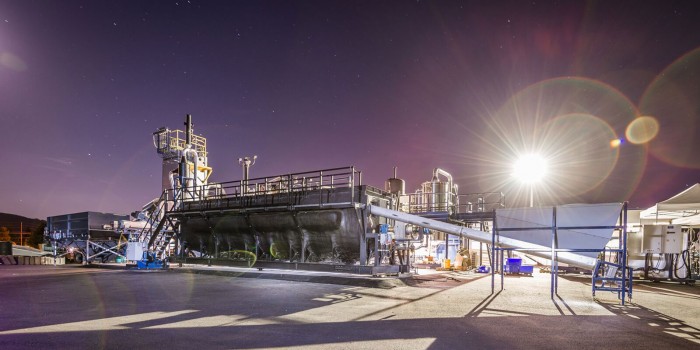
An estimated 2.5 billion people lack access to improved sanitation, putting 35 per cent of the world’s population at risk of deadly water or hygiene-related diseases like diarrhea, Guinea Worm Disease, Buruli Ulcer, and Schistosomiasis. A vast majority of those at risk are rural inhabitants in developing nations where traditional toilets and the infrastructure needed to support traditional toilets are non-existent. Janicki Bioenergy, an engineering firm based north of Seattle, has launched a pilot project in Senegal aimed at tackling these problems by turning human waste into drinkable water, electricity and ash.
Janicki’s OmniProcessor first made waves when Bill Gates released a video of himself taking a sip of “poop water” five minutes after human waste was pumped into the facility to begin the conversion process.
The machine does more than convert waste into water. According to Bill Gates’ blog the next version of the machine is expected to burn most types of garbage in addition to human waste, and it will be easier to maintain.
Over in Dakar, the pilot project has yielded promising results. Millions of people in Senegal’s rural areas are forced to call a company to manually remove human waste from pit toilets. These workers then dig a hole close to the dwelling in which to dispose of the faecal matter, putting the workers and citizens at risk.
When the waste is removed mechanically and transported to the OmniProcessor it cuts out human and waste interaction. It also provides a number of business opportunities because the waste is converted into quality products like brick, electricity and water.
Gates’ blog writes that the technology involved in the OmniProcessor has been around for years.
“So why hasn’t anyone built one before now? Because the people who understood the technology weren’t getting sick or dying from contaminated water, and they didn’t know anyone who was. Nor was it clear how they could make a profit by working on the problem.”






